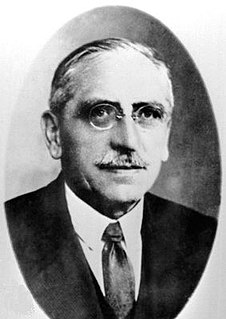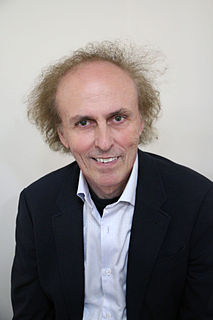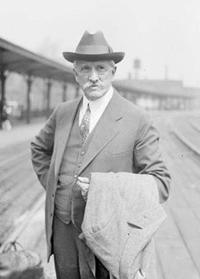A Quote by Carl Friedrich Gauss
I have a true aversion to teaching. The perennial business of a professor of mathematics is only to teach the ABC of his science; most of the few pupils who go a step further, and usually to keep the metaphor, remain in the process of gathering information, become only Halbwisser [one who has superficial knowledge of the subject], for the rarer talents do not want to have themselves educated by lecture courses, but train themselves. And with this thankless work the professor loses his precious time.
Quote Topics
ABC
Aversion
Become
Business
Courses
Educated
Few
Further
Gathering
Gathering Information
Go
His
Information
Keep
Knowledge
Lecture
Loses
Mathematics
Metaphor
Most
Only
Perennial
Precious
Precious Time
Process
Professor
Pupils
Rarer
Remain
Science
Step
Subject
Superficial
Superficial Knowledge
Talents
Teach
Teaching
Thankless
Themselves
Time
Train
True
Want
Work
Related Quotes
Mr. Moony presents his compliments to Professor Snape, and begs him to keep his abnormally large nose out of other people's business. Mr. Prongs agrees with Mr. Moony, and would like to add that Professor Snape is an ugly git. Mr. Padfoot would like to register his astonishment that an idiot like that ever became a professor. Mr. Wormtail bids Professor Snape good day, and advises him to wash his hair, the slimeball.
Progress is slow partly from mere intellectual inertia. In a subject where there is no agreed procedure for knocking out errors, doctrines have a long life. A professor teaches what he was taught, and his pupils, with a proper respect and reverence for teachers, set up a resistance against his critics for no other reason than that it was he whose pupils they were.
One of my favorite courses to teach is when we go to the Air Force. We've done a few at Air Force bases. What's great about that is that it's a one-week course. It's five days and we work with them for about eight hours a day. We're not only teaching them self-defense, but we're also teaching them how to teach it on base to others.
I would have the studies elective. Scholarship is to be created not by compulsion, but by awakening a pure interest in knowledge. The wise instructor accomplishes this by opening to his pupils precisely the attractions the study has for himself. The marking is a system for schools, not for the college; for boys, not for men; and it is an ungracious work to put on a professor.
In science men have learned consciously to subordinate themselves to a common purpose without losing the individuality of their achievements. Each one knows that his work depends on that of his predecessors and colleagues, and that it can only reach its fruition through the work of his successors. In science men collaborate not because they are forced to by superior authority or because they blindly follow some chosen leader, but because they realize that only in this willing collaboration can each man find his goal.
A German merchant of the fifteenth century asked an eminent professor where he should send his son for a good business education. The professor responded that German universities would be sufficient to teach the boy addition and subtraction but he would have to go to Italy to learn multiplication and division. Before you smile indulgently, try multiplying or even just adding the Roman numerals CCLXIV, MDCCCIX, DCL, and MLXXXI without first translating them.
In the field of Egyptian mathematics Professor Karpinski of the University of Michigan has long insisted that surviving mathematical papyri clearly demonstrate the Egyptians' scientific interest in pure mathematics for its own sake. I have now no doubt that Professor Karpinski is right, for the evidence of interest in pure science, as such, is perfectly conclusive in the Edwin Smith Surgical Papyrus.
Fortunately or otherwise we live at a time when the average individual has to know several times as much in order to keep informed as he did only thirty or forty years ago. Being "educated" today requires not only more than a superficial knowledge of the arts and sciences, but a sense of inter-relationship such as is taught in few schools. Finally, being "educated" today, in terms of the larger needs, means preparation for world citizenship; in short, education for survival.
I think we owe it to children to let them dig their knowledge, of whatever subject, for themselves out of the "fit" book; and this for two reasons: What a child digs for is his own possession; what is poured into his ear, like the idle song of a pleasant singer, floats out as lightly as it came in, and is rarely assimilated. I do not mean to say that the lecture and the oral lesson are without their uses; but these uses are, to give impulse and to order knowledge; and not to convey knowledge.







































